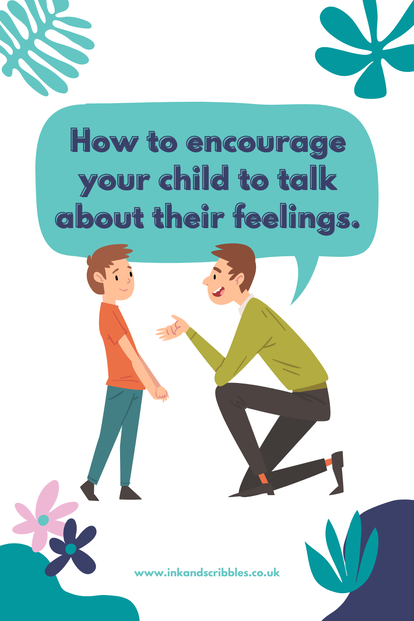We may even hear ourselves saying things our own parents said! I often experience moments that are almost like outer body experiences on my conscious parenting journey; hearing myself say things, whilst my inner wise self shakes her head disapprovingly.
When our children are asked closed questions such as “Are you OK?” or “What’s wrong?” they are very likely to respond in angry, frustrated tones because their nervous system is in stress mode, which means they’re not thinking clearly. They may be experiencing negative thoughts or cognitive distortions which are causing them to feel disconnected and fuelling their emotional state. If you were feeling upset and someone asked, “Are you OK?”, you might automatically experience thoughts popping up such as a sarcastic “Do I look OK?!, or “What a stupid question?”, or “If you don’t know what’s wrong already, leave me alone?”. Using the right language can take the moment in which our child is struggling in an entirely different direction. A direction that feels good for both us and our children whilst also helping them make progress in terms of emotional development and problem solving. So, how do we encourage our children to open up and talk, instead of both them and us feeling furious and disconnected? It’s actually simpler than we realise! We have a tendency to overcomplicate things and an urge to ‘fix’ our unhappy child which can result in our almost panicked “What’s wrong?”. This can feel like pressure to a child who may not quite know what’s wrong or at least not know how to articulate it. It also gives an impression (which may or may not be the case) that you’re uncomfortable with their emotions. Instead, we can draw them into a space that invites curiosity and discussion by stating our observations. Pause, observe and tell your child what you’re seeing in their facial expression and body language. “I’ve noticed your shoulders look tense.” “I can see your smile is gone.” Reflecting these observations back to our children helps them to become more deeply in tune with how their feelings are experienced in their body. It also helps them to feel SEEN and sense that their emotions are safe with you. This is a solid starting point to actually start talking about how they feel before exploring triggers and solutions. This is the language that builds emotional intelligence. From this simple starting point of reflecting your child’s physicality back to them, you will notice that their body language shifts a little as they move their focus to it. You will also notice the atmosphere softens as they become more open to conversation because they feel understood. The key at this point is to maintain that gentleness and curiosity. If you need to encourage them to talk, use a phrase such as “Tell me more”. This gives permission for the feelings to be whatever they are, without judgement. Remember, our goal as parents is to support our children to navigate all emotions. Our Kids Den resources support you to have meaningful conversations with your child. Check out the range here.
0 Comments
|
Categories
All
Archives
April 2024
AuthorHey! I'm the founder, creator and voice of Ink and Scribbles. Sharing thoughts on child well-being and parenting that are based on my teaching and parenting experience, and NLP learning. |


 RSS Feed
RSS Feed